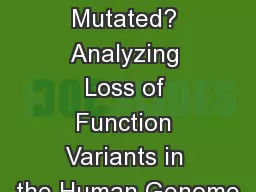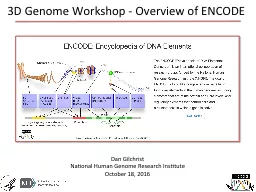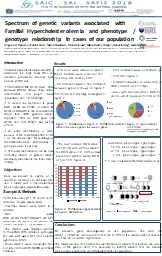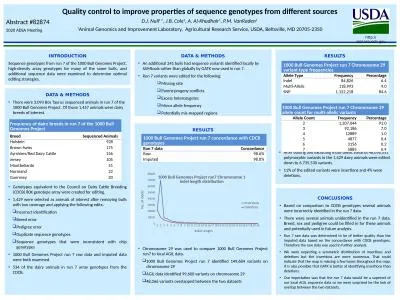PPT-Are My Genes Mutated? Analyzing Loss of Function Variants in the Human Genome
Author : pamella-moone | Published Date : 2018-03-08
Group A1 Caroline Kissel Meg Sabourin Kaylee Isaacs Alex Maeder Introduction Mutations that occur in DNA synthesis can result in a mutated gene that deters
Presentation Embed Code
Download Presentation
Download Presentation The PPT/PDF document "Are My Genes Mutated? Analyzing Loss of ..." is the property of its rightful owner. Permission is granted to download and print the materials on this website for personal, non-commercial use only, and to display it on your personal computer provided you do not modify the materials and that you retain all copyright notices contained in the materials. By downloading content from our website, you accept the terms of this agreement.
Are My Genes Mutated? Analyzing Loss of Function Variants in the Human Genome: Transcript
Download Rules Of Document
"Are My Genes Mutated? Analyzing Loss of Function Variants in the Human Genome"The content belongs to its owner. You may download and print it for personal use, without modification, and keep all copyright notices. By downloading, you agree to these terms.
Related Documents














